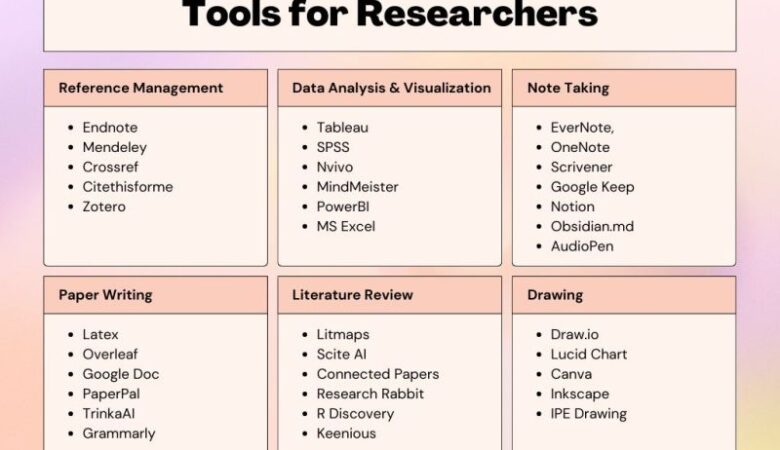Germany, a breathtaking country in Western Europe, is the second-most populous nation after Russia and a prime destination for international students seeking world-class education, stunning landscapes, vibrant urban life, and a warm, multicultural atmosphere. Whether you’re looking to study in the USA, study in Europe, or study abroad, Germany’s blend of top-tier tuition-free universities, cutting‑edge research, and rich cultural heritage makes it an unbeatable choice.
Why Choose Germany for Your Studies?
Tuition-Free Education
Most public universities in Germany charge no tuition fees for international students. You only pay a modest semester contribution (Semesterbeitrag) of €200–€350, covering administrative costs and public transport passes.
(Source: DAAD)
Top-Ranked Universities
Germany boasts several institutions in global rankings:
- Technical University of Munich (TUM) – consistently in the top 50 worldwide
- RWTH Aachen University – renowned for engineering and technology
- Ludwig Maximilians University (LMU) Munich – strong in humanities and natural sciences
English-Taught Programs
Over 1,400 Master’s and Bachelor’s programs are offered entirely in English, making it easy for non‑German speakers to pursue degrees in fields like Computer Science, Engineering, Business Administration, and Life Sciences.
Affordable Cost of Living
Compared to the UK or USA, Germany offers a moderate cost of living:
- Rent & Utilities: €350–€700/month
- Food & Groceries: €200–€300/month
- Public Transport: €50–€100/month
- Health Insurance: €110–€120/month
- Total: €850–€1,200/month
Part-Time Work Opportunities
International students can work up to 20 hours per week during semesters and full-time during breaks, earning €10–€15/hour. This helps cover living expenses and gain valuable work experience in fields such as tutoring, hospitality, and research assistance.
Gateway to Europe
A German student visa allows travel across the Schengen Area (26 countries) without additional visas, enabling weekend trips to Paris, Amsterdam, Prague, and beyond.
Safety and Quality of Life
Germany ranks high in Global Peace Index and offers excellent public healthcare, efficient public transport, and a strong social welfare system.
Top Tuition-Free Universities in Germany
| University Name | QS World Ranking (2024) | Popular Fields |
|---|---|---|
| Technical University of Munich (TUM) | 47 | Engineering, Computer Science, Business |
| RWTH Aachen University | 110 | Mechanical Engineering, Natural Sciences |
| Ludwig Maximilians University (LMU) Munich | 66 | Humanities, Medicine, Social Sciences |
| Humboldt University of Berlin | 115 | Arts, Humanities, Natural Sciences |
| Free University of Berlin | 130 | Political Science, Biology, Psychology |
| University of Heidelberg | 64 | Medicine, Biology, Law |
| Karlsruhe Institute of Technology (KIT) | 118 | Computer Science, Engineering |
| University of Freiburg | 112 | Humanities, Environmental Sciences |
| Technical University of Berlin | 158 | Engineering, Urban Planning |
| University of Tübingen | 165 | Theology, Medicine, Social Sciences |
Best Computer Science Universities in Germany
Germany is a tech powerhouse, making it ideal for Computer Science studies. Top choices include:
- Technical University of Munich (TUM)
- QS: 47
- Highlights: AI research, collaboration with Siemens, BMW
- Karlsruhe Institute of Technology (KIT)
- QS: 118
- Highlights: Cybersecurity, Software Engineering, Data Science
- RWTH Aachen University
- QS: 110
- Highlights: High‑performance computing, robotics
- Technical University of Berlin
- QS: 158
- Highlights: Smart systems, IoT, startup ecosystem
- University of Bonn
- QS: 247
- Highlights: Theoretical CS, mathematics, quantum computing
Popular English-Taught Programs
- M.Sc. Computer Science
- M.Eng. Mechanical Engineering
- MBA / MIM (Master in Management)
- M.Sc. Data Science & Analytics
- M.Sc. Renewable Energy Engineering
- M.A. International Relations
- B.Sc. Business Administration
Pro Tip: Check DAAD’s database for updated listings of English-taught programs:
🔗 DAAD Program Finder
Admission & Application Process
- Choose Your Program
Research universities, entry requirements, and language prerequisites. Prioritize programs with English instruction if you lack German skills. - Meet Academic Criteria
- Bachelor’s: High school diploma equivalent
- Master’s: Relevant Bachelor’s degree with ≥2.5 GPA (on German 1.0–5.0 scale)
- Language Proficiency
- English Programs: IELTS (≥6.5), TOEFL iBT (≥90)
- German Programs: TestDaF, DSH ≥ level 2
- Prepare Documents
- Certified transcripts & diplomas
- Motivation letter (Motivationsschreiben)
- Curriculum Vitae (CV)
- Letters of recommendation (optional)
- Passport copy
- Language test scores
Apply via Uni-Assist or University Portal
Many universities use Uni-Assist for international admissions. Check deadlines (often 15 July for winter semester, 15 January for summer).
Receive Offer Letter
Upon acceptance, secure your seat by paying any required administrative deposit.
Apply for Student Visa
Type D Visa:
- Valid passport
- Proof of admission
- Health insurance
- Blocked account with €11,208/year
- Biometric photo & visa fee (€75)
Submit to German embassy/consulate; processing takes 4–12 weeks.
Scholarships & Funding
DAAD Scholarships: Partial to full funding for Master’s/PhD applicants
Deutschlandstipendium: €300/month for two semesters based on merit
Erasmus+: For EU citizens, exchange grants
University-Specific Scholarships: Check individual university websites
Foundations & Organizations: Konrad-Adenauer-Stiftung, Heinrich Böll Foundation
Pro Tip: Start scholarship applications 6 months before your program start date.
Cost of Living in Germany
| Expense Category | Monthly Cost (EUR) |
|---|---|
| Student dormitory | 250 – 400 |
| Shared apartment | 350 – 600 |
| Food & groceries | 200 – 300 |
| Health insurance | 110 – 120 |
| Public transport | 50 – 100 |
| Leisure & miscellaneous | 50 – 150 |
Total: €850–€1,200 per month
Work While You Study
- On-Campus Jobs: Library assistant, research aide
- Off-Campus: Tutoring, hospitality, retail
- Internships: Mandatory or voluntary internships (Pflichtpraktikum) related to your field
Work Permit:
- Up to 120 full days or 240 half days per year
- No additional permit needed beyond your student visa
Challenges & Tips
Language Barrier
Learn basic German for daily life and job prospects. Apps like Duolingo and courses at Volkshochschule help.
Academic Rigor
German grading is strict (1.0 = excellent; 4.0 = pass). Prepare for independent study and self-discipline.
Longer Graduation Times
Without tuition pressures, some students extend their studies beyond the standard duration.
Regional Fees
Note: Baden-Württemberg charges €1,500/semester for non‑EU students since 2017.
Job Market Competition
Fluency in German boosts employability. Consider German courses (Goethe-Institut).
Frequently Asked Questions
Q: Can I study in Germany for free?
A: Yes, public universities charge no tuition fees for Bachelor’s and most Master’s programs; only a small semester fee applies.
Q: Do I need to know German?
A: For English‑taught programs, no. However, basic German (A2/B1) is recommended for daily life and part‑time jobs.
Q: How much money do I need to show for a student visa?
A: You must open a blocked account with at least €11,208 per year.
Q: Can I stay in Germany after graduation?
A: Yes, you can apply for a Job Seeker Visa (18 months) or a Work Visa if you secure a job.
Conclusion: Launch Your German Adventure
Germany’s combination of tuition-free universities, top‑ranked institutions, English-taught programs, and affordable living makes it an exceptional destination for international students. Whether you aim to explore Computer Science, Engineering, Business, or Humanities, Germany offers a pathway to academic success and professional growth.
Begin your journey today—research programs, prepare your documents, and get ready to study abroad in Europe’s powerhouse. Your future in Germany awaits!







Computer since
I am very interesting to learn the universities in Germany so, please give me a chance to fill my skill gap.